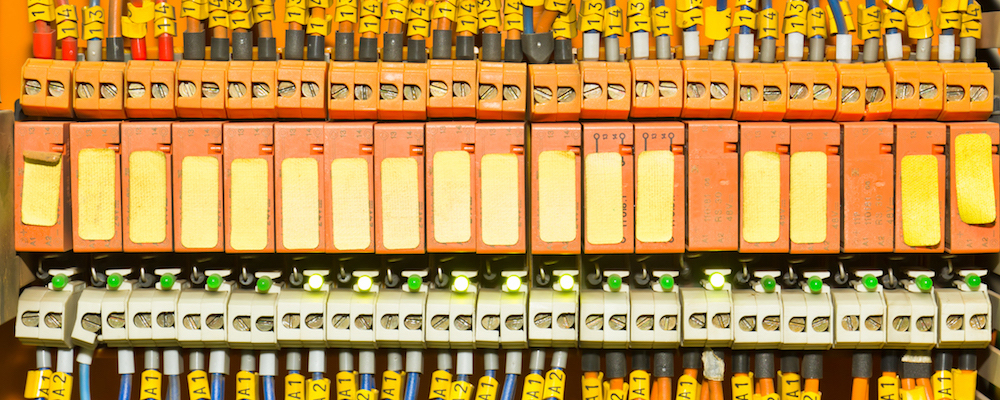What is a Terminal Block?

A terminal block is a tool used to safely connect two or more wires together. Also known as a terminal block connector, these blocks use a clamping component and conducting strip to secure and organize connecting wires. A terminal block allows users to join multiple outgoing wires to one singular incoming wire, thanks to its insulated frame and multiple terminals.
What Does a Terminal Block Do?
There are multiple kinds of terminal blocks, including:
- Ground terminal blocks
- Fused connection terminals
- Thermocouple terminal blocks
- I/O blocks
- Disconnect terminal blocks
- Power distribution blocks
While each specific block type may be used in a different context, they all provide the same function of connecting electrical components in a safe, reliable manner. Screw, spring, and push-in clamping options are available depending on a user’s needs for wire or conductor sizes. Once the wires are properly arranged within a terminal block, current will be able to flow between the incoming and outgoing sources.
How Terminal Blocks Work
Terminal blocks work by directing electrical current through an insulated body, allowing for multiple wires to work simultaneously side by side. Are terminal blocks safe? It may seem like having so much power running through one source may be dangerous, but terminal blocks are specifically designed to route electricity in a manageable pattern. They are made of non-conductive materials such as plastic to minimize risk, and come in a large range of shapes and sizes to meet different project needs.
When choosing a terminal block, you’ll need to consider its:
- Current requirement
- Voltage requirement
- Wire compatibility
- Environmental surroundings
How to Wire Terminal Blocks
While it is possible to connect two wires together without a terminal block, connecting more than two can be challenging and dangerous. Once wires are stripped, the clamping element within the block keeps the lines securely in place, allowing the user to easily determine where everything needs to go. The insulated frame that houses the wires keeps the wires secure, and creates simple mounting for ongoing electrical projects.
Terminal blocks tend to have high current and voltage ratings, and are much tougher than standard connectors. Because of their rugged, touch-safe design, blocks provide a versatility and reliability that lends their use to a wide variety of uses and industries.
Find Terminal Blocks and Electrical Connector Resources with Gateway
Now that you know how a terminal block works, find the right option from our inventory. If your electrical project consists of military-grade connectors and cables, Gateway Cable Company can help. As an industry leader since 1979, we create custom, built-to-last products users depend on. To request a quote for your terminal block needs, contact us today.
